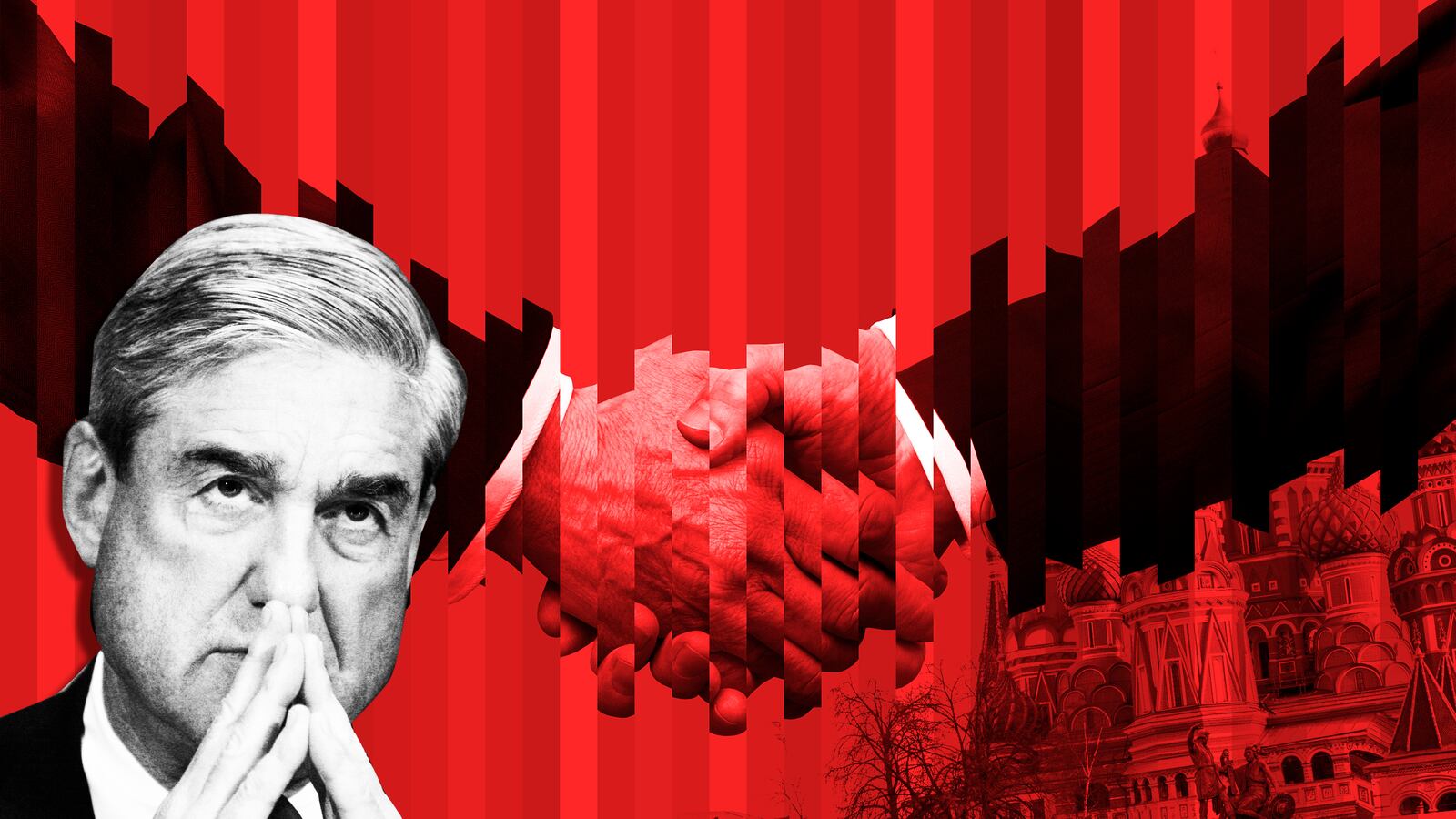The president’s personal lawyers have teamed up with attorneys for other individuals embroiled in special counsel Bob Mueller’s probe, multiple sources tell The Daily Beast. For a while, the president’s lawyers even had regular conference calls with other attorneys to discuss the Mueller investigation, according to one source familiar with the calls.
The arrangement is known as a joint defense agreement, and it allows the lawyers to share information—without violating attorney-client privilege. It’s a common strategy when multiple defendants are dealing with the same prosecutor on the same matter.
Joint defense agreements often annoy prosecutors since they let people being investigated share information and compare notes on what the government is doing.
“It gives the defendants an advantage,” said Sol Wisenberg, a criminal defense attorney with the firm Nelson Mullins. “It allows them to know more about what’s going on in the investigation.”
“Prosecutors don’t like it, but there’s not a damn thing they can do about it,” he added.
The Trump White House isn’t the first one to use joint defense agreements as a legal tool. Wisenberg, who was deputy independent counsel to Ken Starr on the Whitewater and Lewinsky investigations, said the Clinton White House employed them as well.
“They’re very common,” he said. “Clinton had them with virtually everybody when we were investigating him and there’s absolutely nothing wrong with them whatsoever.”
Joint defense agreements can also let people being investigated keep tabs on whether or not their allies have started cooperating with the government. For instance, Michael Flynn stopped sharing information with the president’s lawyers last November, as The New York Times reported—an early sign he had decided to start cooperating with the special counsel probe.
(Jay Sekulow, one of the president’s personal lawyers, declined to comment.)
“They’re not nefarious and they’re usually not used to be able to craft witnesses’ testimony or co-defendants’ testimony,” said Charles Clayman, a New York defense attorney with the firm Clayman & Rosenberg. “But it is sometimes used as a way to determine whether or not someone has flipped and begun to cooperate because once you do that, you have to withdraw from the JDA, return any documents that you have, and keep privileged anything that was said during those meetings.”
These agreements can also help defendants make sure their testimony aligns, according to former federal prosecutor Renato Mariotti.
“The purpose is to be super open with each other so you develop a sense of trust, so you know that everybody in that group is working in the same direction, coordinating, as opposed to pointing fingers at each other, undercutting each other, etc.,” he said.
“It’s a way of exchanging information and coming up with an explanation that’s harmonious,” he added.
This week is poised to be less-than-harmonious for at least one person in Mueller’s sights: Paul Manafort, who will appear in court on Friday for a hearing where a judge will decide whether or not to revoke his bail.






